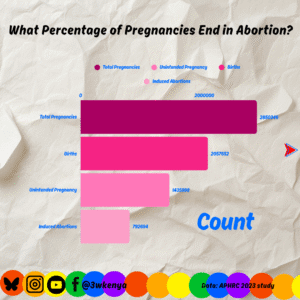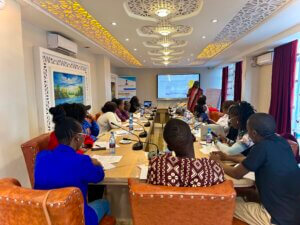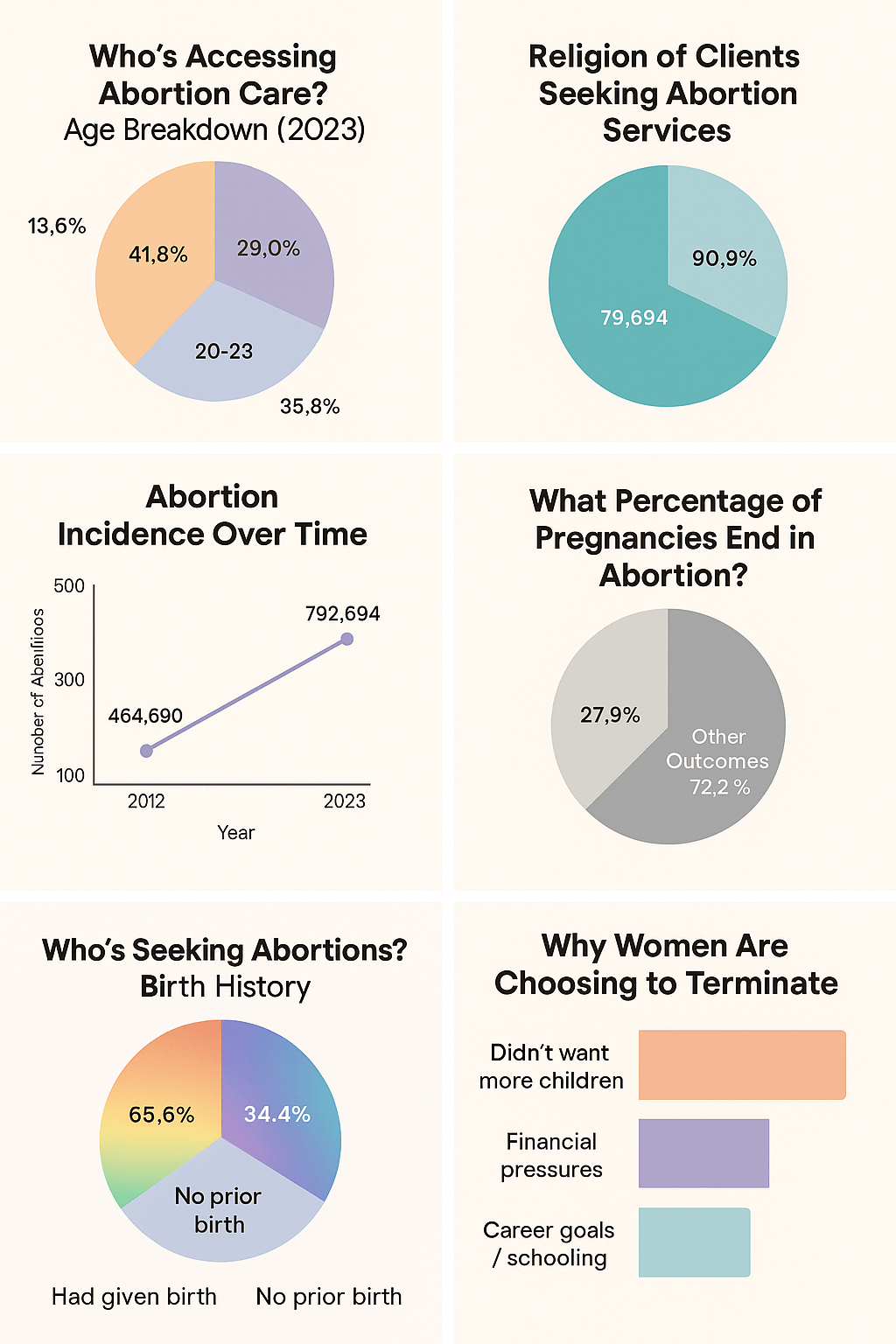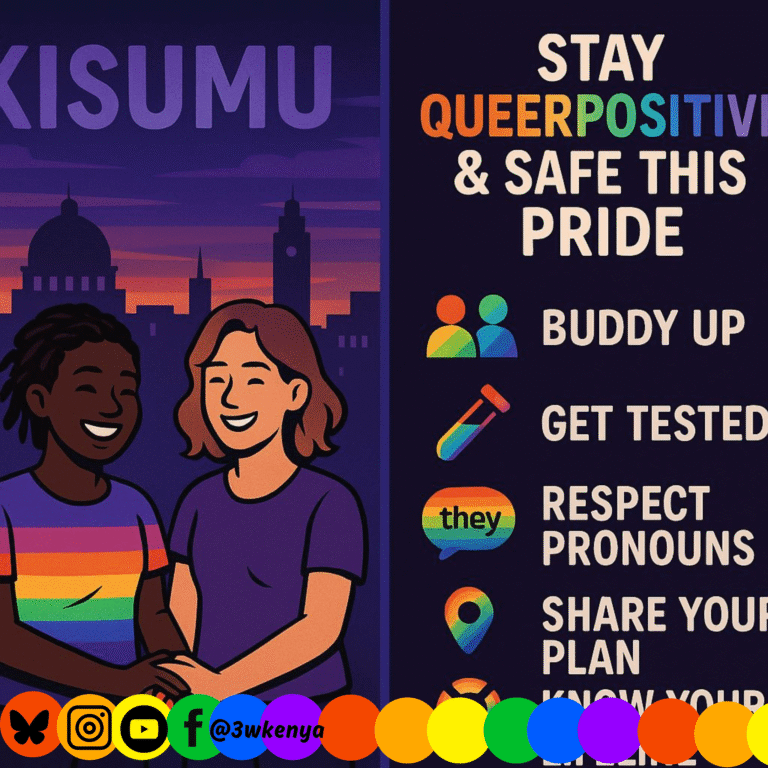Safe Abortion in Kenya: Who’s Really Seeking Care?
Abortion is restricted in Kenya, but that hasn’t stopped women from seeking care. The latest APHRC study (May 2025) flips the script on who needs abortion services. The data show roughly 792,694 induced abortions in 2023 (about 57.3 per 1,000 women of reproductive age) — far higher than many assumed. Even more telling, around 1.436 million pregnancies in 2023 were unintended, indicating a huge unmet need for contraception and safe abortion.
Across Kenya, married women account for the majority of these abortions. APHRC reports that about 78.6% of abortions in 2023 were among married women (just 13.6% were under 20). Women aged 24–34 made up 41.8% of abortion cases. In short, most abortions involve adult women who already have families and want to delay or space births.

Key Findings from the APHRC Study on Safe Abortion in Kenya.
- 792,694 abortions: An estimated 792,694 induced abortions occurred in 2023 (57.3 per 1,000 women aged 15–49).
- Married women: 78.6% of abortions were by married women, not just teens or single women.
- Age: 41.8% of abortions were to women aged 24–34 (only 13.6% to women under 20).
- Religion: 90.9% of women getting abortions identified as Christian; 9.1% were Muslim.
- Contraception gap: Only 34% of women were using contraception when they became pregnant; about 42% avoided it due to fear of side effects.
- Unintended pregnancies: Of roughly 2.85 million pregnancies in 2023, about 1.436 million were unintended. Over half of those unintended pregnancies ended in abortion.
These figures shatter common myths. For example, many assume abortions are mainly an issue for teenagers or unmarried women. APHRC’s data show the opposite: the vast majority of abortion clients are married, adult women managing family size. Senior APHRC researcher Kenneth Juma stressed “a big chunk of women in marriage are also seeking abortion”. It’s clear: abortion is a mainstream health reality in Kenya, not a fringe problem.
Myth vs. Fact: “Abortion is only for teens or single women.” Fact: Nearly 79% of abortions were among married women. Yet only 34% of those women were using contraception when they conceived. This contraceptive gap fuels more unintended pregnancies and unsafe abortions. Abortion stigma in Kenya and misinformation only feed this cycle. Can we afford to keep burying our heads in the sand?
Gaps in LBQTI Access and Queer Reproductive Rights
What about Kenya’s LGBTQ+ community? Abortion stigma in Kenya hits queer people especially hard. 3w has noted that too often people assume only cisgender heterosexual women deserve safe abortion care, erasing LGBTQI experiences. The truth is queer people can and do get pregnant through various means (consensual sex, assisted reproduction, or sexual violence) and need abortion and contraception services just like anyone. Yet LGBTQ+ individuals face extra hurdles: research shows LGBTQ+ people encounter bias and discrimination in reproductive health settings. These barriers block LBQTI access to abortion, putting queer persons at even higher risk. Fighting for queer abortions and queer reproductive rights means ensuring every person – regardless of sexuality or identity – can access family planning and abortion care.
Why This Matters – 3w’s Mission
These findings align directly with 3w’s mission. We use data to challenge stigma and expand services. The APHRC study makes one thing clear: abortion affects mothers, professionals, urban and rural women, and queer women and girls. 3w and our partners are acting on this. We promote accessible contraception, create safe spaces for LGBTQ+ persons, train providers for inclusive care, and fight misinformation through advocacy.

Tak e action: Policymakers, health professionals, donors, activists – the data are out. Read the full APHRC report and share these facts. Visit 3w’s website for resources on safe abortion in Kenya and LBQTI health. Together, we can ensure safe abortion in Kenya is a reality for all and protect reproductive rights for everyone.
Sources: APHRC (2025) study on abortion in Kenya; Kenya news analysis



